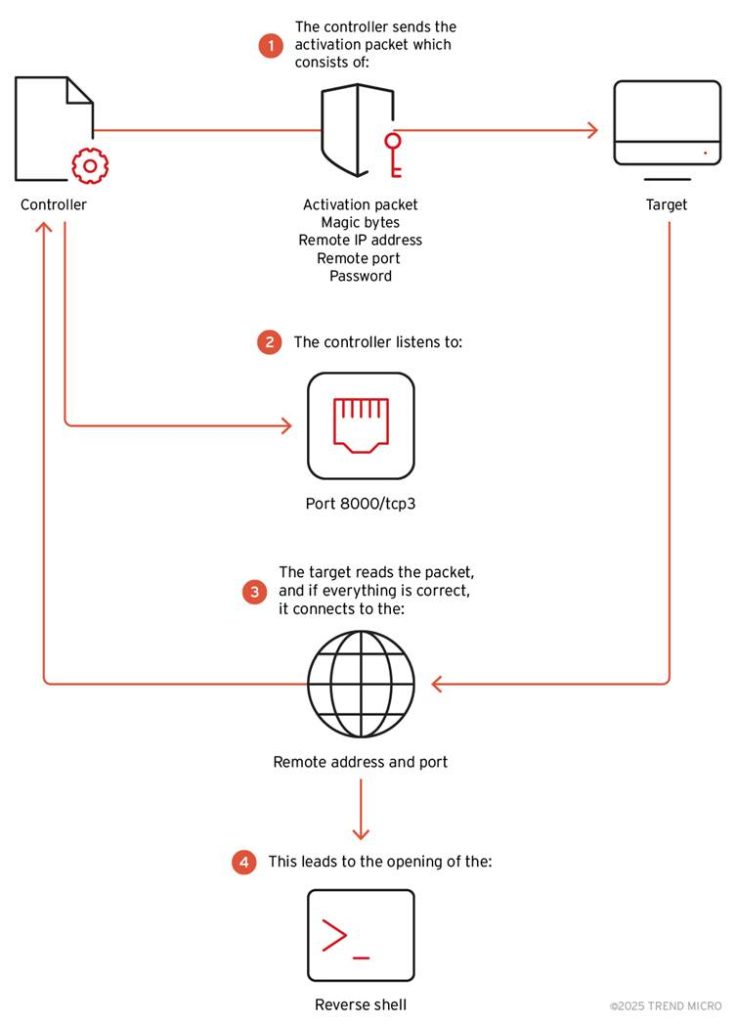A brand new wave of cyber espionage assaults has introduced BPFDoor malware into the highlight as a stealthy and harmful instrument for compromising networks.
In line with safety consultants at Development Micro, BPFDoor is a state-sponsored backdoor attributed to the superior persistent menace (APT) group often called Earth Bluecrow (additionally known as Crimson Menshen).
This malware exploits reverse shells and complicated Berkeley Packet Filtering (BPF) strategies to infiltrate and management methods throughout telecommunications, finance, and retail sectors in areas comparable to South Korea, Hong Kong, Myanmar, Malaysia, and Egypt.
Understanding BPFDoor Malware
BPFDoor, a backdoor detected as Backdoor.Linux.BPFDOOR, is uniquely highly effective attributable to its reliance on BPF, a kernel-level packet filtering expertise.


Whereas its core functionalities resemble rootkits, BPFDoor distinguishes itself by means of its capacity to stay undetected by firewalls and evade typical community scans.
The malware prompts upon receipt of “magic sequences” — particular byte strings embedded in community packets — that set off predefined actions on the goal machine.
The first stealth capabilities of BPFDoor embrace altering course of names, avoiding port listening, and bypassing safety logs.
This makes it extremely appropriate for long-term espionage, permitting attackers to embed themselves deeply inside a community with out elevating suspicion.


Reverse Shell Method and Lateral Motion
One in all BPFDoor’s alarming capabilities is its use of reverse shells to broaden management over contaminated methods.
A reverse shell permits attackers to run instructions remotely on compromised servers by reversing the standard client-server communication mannequin. By way of this mode, attackers can transfer laterally throughout networks to entry delicate knowledge or management further methods.
Utilizing a customized controller, menace actors deploy reverse shells through three protocols: TCP, UDP, and ICMP. As soon as activated, the malware communicates with the attacker’s system by bypassing customary safety defenses.


For instance, a controller command can ask BPFDoor to open an encrypted reverse shell session between an contaminated host and an attacker’s machine, enabling seamless distant entry.
The controller additionally permits attackers to change parameters like passwords, magic sequences, and vacation spot ports, enhancing customization for various targets.
Such versatility allows Earth Bluecrow to adapt its assaults for various industries and geographies.
Targets and Protection Mechanisms
Development Micro’s investigation revealed BPFDoor primarily targets Linux-based servers in sectors crucial to nationwide and company safety.
Current assaults have been noticed on telecommunications suppliers in South Korea and Myanmar, monetary establishments in Egypt, and retail companies in Malaysia.
Defenders are urged to watch community exercise for uncommon TCP, UDP, or ICMP packets containing suspicious magic sequences or patterns indicative of BPFDoor exercise.


BPFDoor’s capacity to make use of reverse shells, mixed with its stealthy nature, poses important dangers to organizations worldwide.
As Earth Bluecrow continues to refine its strategies, corporations should bolster their defenses to guard in opposition to this superior cyber espionage instrument.
Detection, response, and proactive safety measures are crucial to countering BPFDoor and safeguarding delicate networks.
Discover this Information Attention-grabbing! Observe us on Google Information, LinkedIn, & X to Get Instantaneous Updates!


.png
)